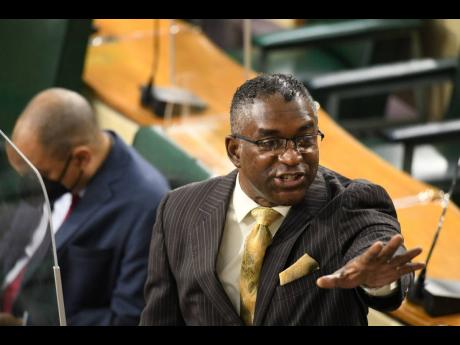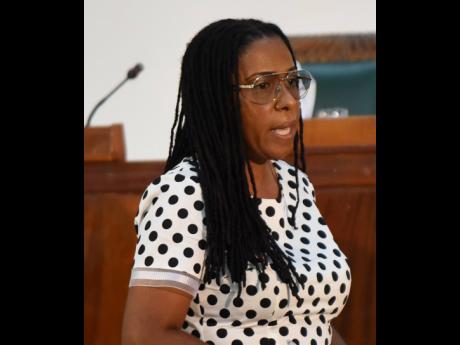‘It’s a tricky one’
Legislators mull privacy issues re findings of disciplinary matters against teachers
Members of the Joint Select Committee of Parliament reviewing the Jamaica Teaching Council (JTC) Act, 2023 on Wednesday found it difficult to come to a consensus regarding whether the findings of a disciplinary hearings against educators should be shared with the teacher’s employer and the complainant.
Section 58 (3) of the act says the report compiled by the Professional Practice and Conduct Committee (PPCC) – which includes the decision made, the reasons, the date that the decision takes effect, and the period that the decision may remain in force – must be issued to the JTC.
Section 58 (4) says the council should, within seven days, serve a copy of the report on the teacher and their employer.
Given that the report is so detailed, government senator Natalie Campbell-Rodriques voiced concern that its distribution might compromise people’s privacy.
“It’s a tricky one,” she said, arguing that caution should be exercised when dealing with privacy matters.
She further stated that the employer and complainant did not need to be given a copy of the full report, but could instead be notified of the decision.
“If there is a red flag that the employer needs to be aware of, then I think that should be a separate report, taking out that red-flagged item,” she said.
Government senator Kavan Gayle added that “a report of that nature, having gone through an investigation, may identify certain other deficiencies surrounding the particular institution, which a person outside making a complaint have no business to be aware of, and so the important thing is that the person making the complaint should only receive the decision. If they want to appeal that decision, then there’s some other process that ought to deal with [that].”
In the instance of the matter involving private schools, whose boards are thought to be the employers, Campbell-Rodriques stated that they, too, should not have a copy of the report but must be informed of the decision.
Gayle disagreed with this viewpoint, however, stating that in this instance, the institution or employer ought to be privy to the report as it can assist in the necessary amendments the institution needed to make regarding their operations.
In response, Campbell-Rodriques said that while the point was valid, the institution would only require the pertinent sections of the report.
“There may be other things in it that may prejudice against the teacher that maybe the school board does not need to know ... . It’s a little tricky with privacy matters to hand over a full report to the school board,” she said.
Chiming in, opposition senator Senator Lambert Brown expressed that perhaps a policy statement needed to be included to indicate whether the PPCC should make the report available to the public if a request is made.
“The PPCC can, in drafting their report, do it in such a way to take into account how they report on ‘sensitive’ issues, ... not necessarily redacting anything, but writing it in such a way that it doesn’t have to say everything, but could point to issues that it finds,” Brown reasoned.
Government legal officer Jeffrey Foreman, speaking on whether access to the report could be blocked, said: “I’m not sure of the extent to which any council can advise on this. In one part, it’s a policy decision. The legal aspect to it informs the fact that there is a constitutional right to access information,” he said, referring to the Access to Information Act.
“There’s also the consideration that these decisions are public, in the sense that the council will be exercising authority given to it by the Parliament, acting in the public interest to ensure that persons are disciplined appropriately for any wrongdoing ... and that these decisions do set precedent as they will inform the standards that will be expected of teachers ... . So, a large bit of this are matters for the committee to assess,” the attorney added.
The committee spent nearly an hour deliberating on whether to accept Campbell-Rodriques’ proposal.
Eventually, Education Minister Fayval Williams, who chairs the committee, accepted a proposal for further research to discover what privacy matters might be in breach before the clause is signed off on.


